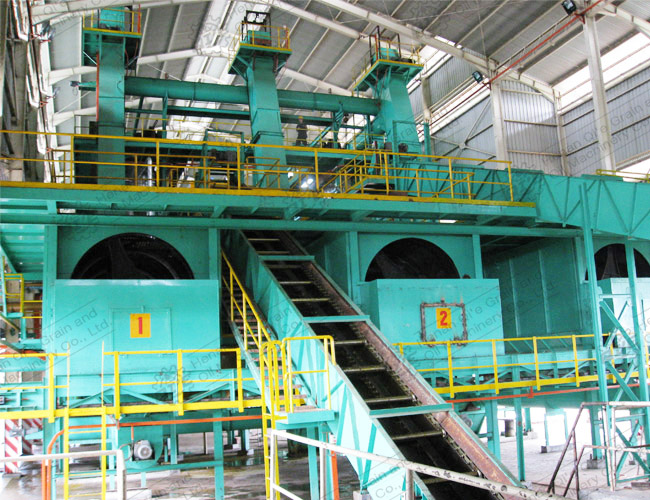
In today's global food industry, there is an escalating demand for both production efficiency and sustainability. With the ever - growing population, the need to produce more food products in a shorter time frame has become a top priority. At the same time, environmental concerns have pushed companies to reduce their carbon footprint and energy consumption. According to industry reports, energy costs can account for up to 20% of the total production cost in the food processing sector. Therefore, finding ways to increase efficiency while reducing energy use is crucial for the long - term success of food manufacturers.
The palm oil production line stands out with its remarkable combination of high automation and low energy consumption. The high - automation feature is achieved through the use of advanced sensors and control systems. For example, these sensors can monitor the temperature, pressure, and flow rate in real - time, ensuring that the production process runs smoothly. This reduces the need for manual intervention, which not only increases efficiency but also reduces the risk of human error.
In terms of low energy consumption, the production line uses state - of the - art energy - saving technologies. The new generation of motors and pumps consume up to 30% less energy compared to traditional models. Additionally, the heat recovery system can recycle up to 80% of the waste heat generated during the production process, which can be reused for pre - heating raw materials or other purposes.

The palm oil production line has effectively responded to market challenges through innovation. One of the major challenges in the palm oil market is the increasing competition. To address this, the production line has been designed to increase the yield of palm oil. On average, it can increase the oil extraction rate by 5 - 8% compared to traditional production lines, which means more products can be produced from the same amount of raw materials.
Another challenge is the strict environmental regulations. The production line meets all the international environmental standards. It reduces the emission of pollutants such as greenhouse gases and waste water, which not only helps companies avoid potential fines but also enhances their corporate image.
In terms of environmental protection, the low energy consumption and waste reduction features of the production line significantly reduce the environmental impact. As mentioned before, the heat recovery system and energy - saving equipment help to reduce energy consumption, while the efficient waste treatment system reduces the amount of waste released into the environment.
From a cost - effectiveness perspective, the high automation reduces labor costs, and the low energy consumption reduces energy costs. On average, customers can save up to 25% of their production costs in the first year of using the new production line. Moreover, the high oil extraction rate means more products can be sold, increasing the revenue.
For high - quality production, the advanced control systems ensure that the quality of palm oil is stable and meets international standards. The sensors can detect any abnormalities in the production process in time, allowing for immediate adjustments.

The palm oil production line has gained recognition from customers in more than 20 countries around the world. These customers range from small - scale local oil mills to large - scale international enterprises. They have all benefited from the high - efficiency, low - energy - consumption, and high - quality features of the production line.
Our palm oil production line can be customized to meet the needs of different - scale oil mills. It is easy to operate and maintain, which can help you reduce production costs and improve market competitiveness. Contact us today to start your journey towards sustainable and efficient palm oil production!

